What is a root canal?
A root canal is the most common dental procedure performed in our office. This treatment can save your natural tooth and prevent the need for dental implants or bridges.
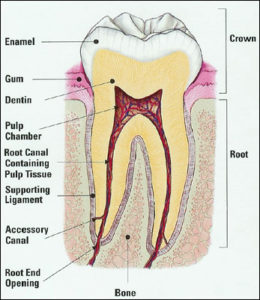
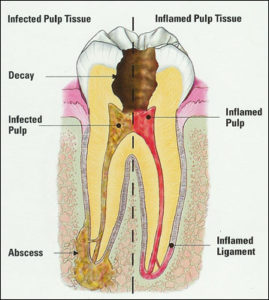
At the center of your tooth is pulp. The pulp is a collection of blood vessels, nerves, and connective tissue that help to initially build the surrounding tooth. Infection of the pulp can be caused by trauma to the tooth, deep decay, cracks and fractures, or repeated dental procedures on the tooth. Symptoms of the infection can include swelling around the tooth, sensitivity to temperature, discomfort when chewing with the tooth, and spontaneous pain. If you experience any of these symptoms, your dentist may recommend root canal therapy to eliminate the diseased pulp.
How is a root canal performed?
Dr. Comer will anesthetize your tooth to eliminate discomfort. The injured and/or diseased pulp is removed and the root canal system is thoroughly cleaned and sealed. This treatment may be completed in one or more visits depending on the treatment required. Success for this type of treatment ranges from 80 to 98 percent depending upon the severity of disease. If your tooth is not amenable to endodontic treatment or the chance of healing is unfavorable, you will be informed at the time of consultation or when a complication becomes evident during or after treatment.
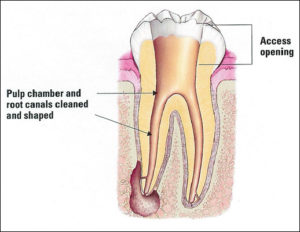
What happens after treatment?
When your root canal therapy has been completed, a record of your treatment will be sent to your general dentist. You should contact their office for a final restoration within one week of completion at our office. Any delay in the placement of a permanent restoration can exert a negative influence on the outcome of root canal therapy. Your general dentist will decide what type of restoration is necessary to protect your tooth, but in most circumstances a full coverage restoration (such as a crown) will be recommended. It is rare for endodontic patients to experience post-operative complications after root canal therapy or microsurgery. However, if a problem does occur, you should contact our office as soon as possible.
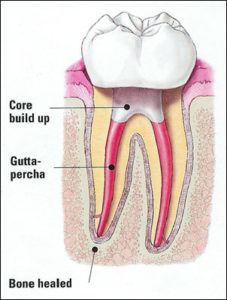
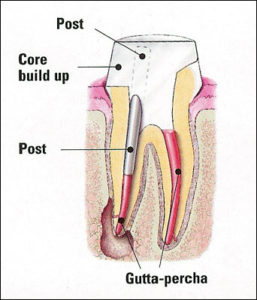
How much will it cost?
The cost associated with root canal therapy can vary depending on multiple factors. Severity of damage to the affected tooth, the tooth that is affected, and history of previous root canal procedures can all affect the cost. In general, endodontic treatment is much less expensive than tooth removal and replacement with an artificial tooth. You will be informed of the cost prior to the initiation of treatment.
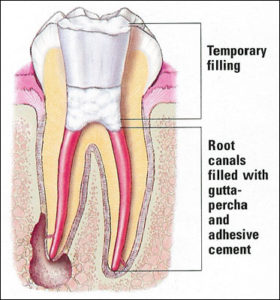
Information on this procedure has been adopted from the copyrighted literary content of the American Association of Endodontics.